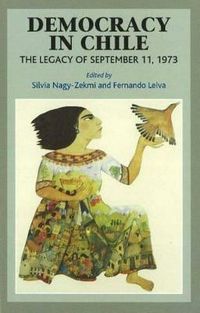
endast ny
Democracy in Chile
In the 1990s, Latin America emerged from the horror of massive and systematic human rights violations as the region returned to civilian-elected regimes. Many hoped that such transitions would bring about significant political, economic and cultural change: the rebuilding a more democratic order based on a "culture of human rights" that would reinvigorate democratic practices in the region. Despite the change in political regimes, such aspirations have come up against the "recalcitrant realities" of enduring military enclaves demanding impunity for past crimes, the persistence of neoliberal economics, ineffective and, in some cases, corrupt government coalitions, as well as the seemingly insatiable demands of private domestic and international capital for "flexible" labor and unregulated capital flows. The tragic events of 9/11 have become so pivotal in current debates on US domestic and foreign policy, that the "other" 9/11, that which took place three decades ago in Chile, seems to have been relegated to a distant footnote. This volume aims to re-examine Chile's 9/11 a historically and symbolically charged event and to explore the lasting legacy of the transformations brought about by the oppressive regimes of the '70s and '80s as they are being experienced today in the cultural, social and intellectual life of the region.
Utgiven: 2013
ISBN: 9781845192020
Förlag: Liverpool University Press
Format: Häftad
Språk: Engelska
Sidor: 280 st
In the 1990s, Latin America emerged from the horror of massive and systematic human rights violations as the region returned to civilian-elected regimes. Many hoped that such transitions would bring about significant political, economic and cultural change: the rebuilding a more democratic order based on a "culture of human rights" that would reinvigorate democratic practices in the region. Despite the change in political regimes, such aspirations have come up against the "recalcitrant realities" of enduring military enclaves demanding impunity for past crimes, the persistence of neoliberal economics, ineffective and, in some cases, corrupt government coalitions, as well as the seemingly insatiable demands of private domestic and international capital for "flexible" labor and unregulated capital flows. The tragic events of 9/11 have become so pivotal in current debates on US domestic and foreign policy, that the "other" 9/11, that which took place three decades ago in Chile, seems to have been relegated to a distant footnote. This volume aims to re-examine Chile's 9/11 a historically and symbolically charged event and to explore the lasting legacy of the transformations brought about by the oppressive regimes of the '70s and '80s as they are being experienced today in the cultural, social and intellectual life of the region.
Ny bok
458 kr482 kr
5% studentrabatt med Studentapan
Begagnad bok (0 st)
Varje vecka tillkommer tusentals nya säljare. Bevaka boken så får du meddelande när den finns tillgänglig igen.



